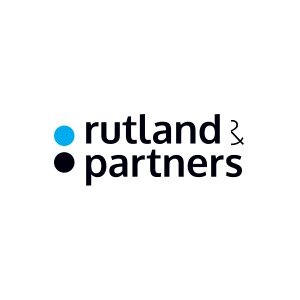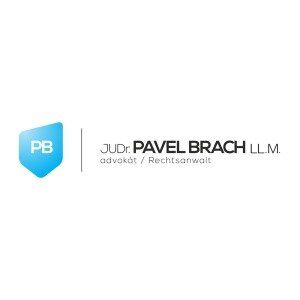Best Energy Regulatory Law Lawyers in Prague
Share your needs with us, get contacted by law firms.
Free. Takes 2 min.
List of the best lawyers in Prague, Czechia
About Energy Regulatory Law in Prague, Czechia
Energy Regulatory Law in Prague, Czechia, deals with the complex rules and regulations governing the generation, transmission, distribution, and sale of energy such as electricity, natural gas, and renewables. It also oversees market competition, consumer protection, pricing, licensing, and cross-border energy exchanges. The legal framework is shaped by both Czech law and European Union directives that focus on market liberalization, sustainability, and consumer rights. The Energy Regulatory Office (Energetický regulační úřad, or ERÚ) is the main authority responsible for regulating the energy sector in the country, ensuring compliance, and protecting both market participants and consumers within Prague and across Czechia.
Why You May Need a Lawyer
There are several situations where seeking legal help in the field of Energy Regulatory Law becomes essential. These include:
- Starting a new business that involves energy production, trading, or supply
- Obtaining licenses and permits to generate or distribute electricity or gas
- Dealing with disputes related to utility connections, billing, or tariffs
- Negotiating and drafting supply, purchase, or distribution agreements
- Ensuring compliance with changing regulatory requirements
- Participating in public procurements or auctions for energy projects
- Handling renewable energy projects and related subsidies or incentives
- Managing cross-border energy transactions or trading within the EU energy market
- Challenging fines or penalties imposed by regulatory bodies
- Addressing environmental impact assessments and permitting issues
A lawyer specialized in Energy Regulatory Law can guide you through complex administrative processes, defend your interests in disputes, clarify your rights and obligations, and help you avoid costly mistakes.
Local Laws Overview
Energy Regulatory Law in Prague is primarily governed by the Energy Act (No. 458/2000 Coll.), the Act on Supported Energy Sources (No. 165/2012 Coll.), and related government ordinances. EU law, such as the Clean Energy Package, also directly impacts local regulatory practices.
Key aspects of local laws include:
- Licensing - Companies and individuals must obtain a license from the ERÚ for most energy operations
- Market regulation - The ERÚ sets prices for regulated services, monitors market competition, and enforces fair practices
- Consumer protection - Rules exist for transparent billing, metering, and handling customer complaints
- Support for renewables - There are specific laws facilitating investment in renewable energy, including feed-in tariffs and green bonuses
- Grid access - Laws ensure non-discriminatory access to the electricity and gas networks
- Dispute resolution - The ERÚ provides mechanisms to resolve disputes between market participants and between companies and consumers
- Fines and sanctions - Regulatory bodies may impose fines for violations of energy laws or licensing conditions
- Environmental controls - Energy projects must comply with environmental impact assessment and permitting under Czech and EU laws
Frequently Asked Questions
What is the Energy Regulatory Office (ERÚ) and what does it do?
The ERÚ is an independent administrative authority that regulates and supervises the energy sector in Czechia, including electricity, gas, and heating. It issues licenses, sets tariffs for regulated services, resolves disputes, enforces compliance, and protects consumers.
Do I need a license to produce solar electricity for my own use?
Small-scale production of electricity for personal or household use (typically up to a specific capacity limit) may not require a full license but may need to meet registration and safety requirements. Larger or commercial installations usually require an ERÚ license.
How are electricity and gas tariffs set in Prague?
Tariffs for the use of transmission and distribution networks are regulated and set by the ERÚ. The prices for electricity or gas as commodities are determined by market competition, but regulated providers must follow ERÚ guidelines.
Can the ERÚ help if I have a complaint about my energy supplier?
Yes, the ERÚ can mediate disputes between customers and energy companies regarding billing, supply interruptions, and service quality. Consumers should first contact their supplier, and if unresolved, approach the ERÚ.
What are my rights as an energy consumer in Prague?
Consumers have the right to accurate metering, transparent billing, fair contract terms, dispute resolution, and to switch suppliers without unjustified obstacles. Special protections exist for vulnerable customers.
What incentives exist for renewable energy projects?
Czechia offers various incentives, such as feed-in tariffs and green bonuses, to promote investment in renewables. Eligibility criteria and rates are set in legislation and administered by the ERÚ and other agencies.
How do regulations affect cross-border energy trading?
Czech energy law and EU regulations require that cross-border energy trading comply with market transparency, anti-monopoly rules, and non-discriminatory access to transmission networks.
What penalties can the ERÚ impose for violating energy laws?
The ERÚ can impose fines, revoke licenses, or restrict operations for violations such as unlicensed activities, unfair practices, or failure to comply with technical standards.
How are disputes between energy companies resolved?
Many disputes between market participants are resolved by the ERÚ, which acts as an administrative body. Parties can also apply to courts for judicial review or for settlement of civil claims.
What legal obligations apply before constructing an energy facility?
Developers must follow planning and zoning rules, obtain environmental permits, complete impact assessments, and secure an energy license before constructing and operating energy facilities.
Additional Resources
If you need more information or assistance regarding Energy Regulatory Law in Prague, the following organizations and resources can be helpful:
- Energy Regulatory Office (Energetický regulační úřad - ERÚ): The main regulatory authority for energy in Czechia
- Ministry of Industry and Trade (Ministerstvo průmyslu a obchodu): Responsible for energy policy and strategy
- Czech Chamber of Commerce: Offers support for businesses in the energy sector
- Association of Energy Service Providers (Asociace poskytovatelů energetických služeb): Industry group for professionals
- Czech Bar Association (Česká advokátní komora): Provides a list of attorneys specializing in energy law
- European Union Energy Portal: Information on EU legislation and cross-border energy issues
Next Steps
If you believe you need legal assistance with Energy Regulatory Law in Prague, consider taking the following steps:
- Identify your main issue or the type of legal question you have
- Gather all relevant documents, contracts, and correspondence
- Reach out to the Energy Regulatory Office for preliminary guidance or clarification
- Consult with a lawyer who specializes in energy law or regulatory matters in Czechia
- Confirm the lawyer's expertise and experience with similar cases
- Discuss your legal options, costs, and possible outcomes with your legal advisor
- Follow your lawyer's recommendations for filing applications, responding to notices, or submitting complaints
- Stay informed about changes in energy laws and regulations that may affect your situation
Navigating Energy Regulatory Law can be complex, especially for businesses or individuals unfamiliar with the Czech legal system. Professional legal advice ensures that your rights and interests are protected throughout any transaction or dispute.
Lawzana helps you find the best lawyers and law firms in Prague through a curated and pre-screened list of qualified legal professionals. Our platform offers rankings and detailed profiles of attorneys and law firms, allowing you to compare based on practice areas, including Energy Regulatory Law, experience, and client feedback.
Each profile includes a description of the firm's areas of practice, client reviews, team members and partners, year of establishment, spoken languages, office locations, contact information, social media presence, and any published articles or resources. Most firms on our platform speak English and are experienced in both local and international legal matters.
Get a quote from top-rated law firms in Prague, Czechia — quickly, securely, and without unnecessary hassle.
Disclaimer:
The information provided on this page is for general informational purposes only and does not constitute legal advice. While we strive to ensure the accuracy and relevance of the content, legal information may change over time, and interpretations of the law can vary. You should always consult with a qualified legal professional for advice specific to your situation.
We disclaim all liability for actions taken or not taken based on the content of this page. If you believe any information is incorrect or outdated, please contact us, and we will review and update it where appropriate.









